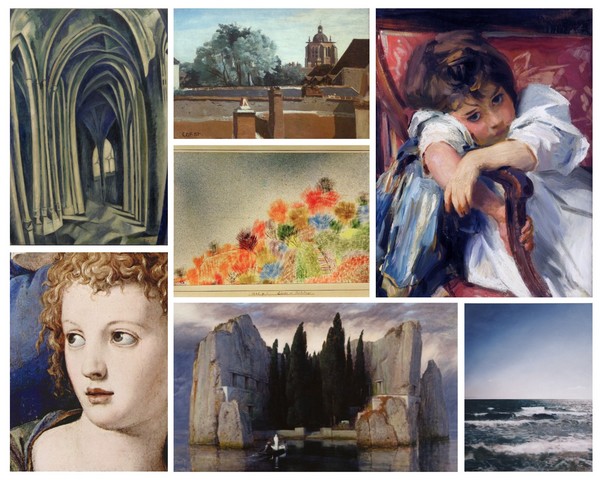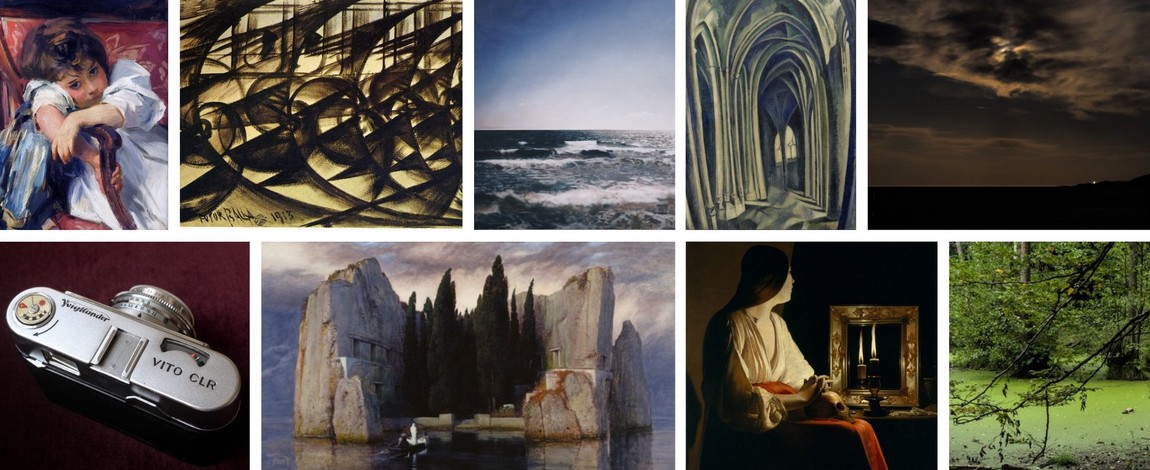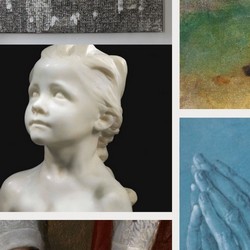
We spoke a while ago about how trends also affect the world of Lied, and works that had been very much present in recitals and recordings for decades almost disappeared from the repertoire. On that occasion, I shared a Lied that had been one of Schubert's most popular in the 19th century, and now you barely hear it, Lob der Tränen. I would say the Lied of this week, Seligkeit, it's a similar case.
Similar, but not quite the same. Seligkeit [Bliss] is a song composed by Franz Schubert in 1816; the poem, entitled Engel [Angel], was written by of his favorite poets at the time, Ludwig Hölty, who wrote it in 1773, three years before he died at twenty-eight. The song remained unpublished for many decades; it was first published in 1895, and quickly became extraordinarily popular. It appears that a soprano we usually relate to Richard Strauss, Elisabeth Schumann, liked very much this song and used to sing it as encore. She recorded it, as did the best singers of the genre for decades. So, this is a similar case to Lob der Tränen, but not quite the same; I'm sure many of you know this Lied, or you'll recognize it when you start listening to it; probably, not because you listened to it recently in recitals, but because you heard the recordings of the most important singers of the 20th century.
You know there's an unofficial category of Lieder, the “delicious lieder”, don't you? Seligkeit is one of them; as soon as it starts, it draws a smile on our faces. The music moves between a ländler and a waltz, and with this rhythm that invites to dance, the poet tells us about the bliss that await us in Heaven: he would like to be there and enjoy forever! The lied is pure strophic, i.e. the three stanzas are musically identical, and the first two stanzas tell us of this festive Heaven, full of music, where everyone sings and dances. This atmosphere reminds me of that of another Lied, Das himmlische Leben by Mahler, where popular culture recreates a Heaven with plenty of music and feasts (people starved in the times of Des Knaben Wunderhorn). But Hölty, in the third stanza, surprises us with a plot twist: while we're waiting for the praise of blissful Heaven to continue, the speech becomes earthly and the poet diverts our attention to his beloved Laura: if she would accept him, he would rather stay with her, down here, forever.
As you can see, it's a very humorous and light song, which I chose because we're celebrating this week: Liederabend turns eleven years old. You've noticed the figures at the title, haven't you? During this last year, we added 52 songs to our repertoire; ten, almost a quarter, are from composers that made here their debut, and we also first met thirteen poets. We invited nineteen singers and fourteen accompanists for the first time to perform them. And thats how we have these figures accumulated in eleven years: 590 (songs) - 134 (compositors) - 251 (poets) - 258 (singers) - 249 (accompanists).
As every year, I've looked on in disbelief of the numbers. The selection of songs is clearly biased towards a handful of composers (headed by the apple of my eyes, Franz Schubert); still, these hundred and thirty-four names covers much of European geography, with some brief trips to America, and extend over almost four hundred years. Something similar happens with singers: there are a few usual voices, but beyond two hundred and fifty artists allow a wide panorama to be covered (poets, you know, are chosen by composers, and pianists are chosen by singers). So, I hope that if your tastes don't really fit with mine, you can also find yours on Liederabend, as well as new discoveries.
What can I tell you, my dearest readers: one more year, thank you very much for being there, for your support, for your comments. I leave you with the lightness of Seligkeit and with a great baritone, Wolfgang Holzmair, accompanied by Ulrich Eisenlohr at the fortepiano. Long live Lied!
Freuden sonder Zahl
Blühn im Himmelssaal
Engeln und Verklärten,
Wie die Väter lehrten.
O da möcht' ich sein,
Und mich ewig freun!
Jedem lächelt traut
Eine Himmelsbraut;
Harf' und Psalter klinget,
Und man tanzt und singet.
O da möcht' ich sein,
Und mich ewig freun!
Lieber bleib' ich hier,
Lächelt Laura mir
Einen Blick, der saget,
Daß ich ausgeklaget.
Selig dann mit ihr,
Bleib' ich ewig hier!
Joys without number
bloom in heaven's hall
of angels and transfigured beings,
just as our fathers taught us.
O, there I would like to be
and rejoice forever!
Upon everyone dearly smiles
a heavenly bride;
harp and psalter resound,
and everyone dances and sings.
O, there I would like to be
and rejoice forever!
But I'd rather remain here
if Laura would smile at me
with one glance that said
I should end my lamenting.
Blissfully then with her,
I would stay here forever!
(translation by Emily Ezust)


















Comments powered by CComment